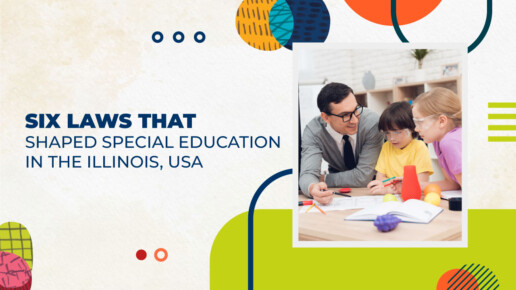Six Laws that Shaped Special Education in the Illinois, USA
Special education in Illinois, USA, has a rich and evolving history, largely influenced by significant legislation over the years. These laws have played a vital role in shaping the educational landscape for individuals with disabilities, ensuring their rights, access to education, and support systems. In this article, Metaphrasis explores six laws that have been instrumental in the development of special education in the state.
- Education for All Handicapped Children Act (1975)
One of the most crucial laws in the history of special education is the Education for All Handicapped Children Act, passed in 1975. This landmark legislation ensured that all children with disabilities have the right to a free and appropriate public education (FAPE) tailored to their unique needs. It laid the foundation for the Individualized Education Program (IEP), which outlines the specific services and accommodations each student requires.
- Individuals with Disabilities Education Act (IDEA) (1990)
Building upon the Education for All Handicapped Children Act, the Individuals with Disabilities Education Act (IDEA) was enacted in 1990. This law expanded the scope of services available to children with disabilities and emphasized the importance of inclusive education. It mandated that students should be educated in the least restrictive environment possible, promoting integration and interaction with non-disabled peers.
- Americans with Disabilities Act (ADA) (1990)
While not solely focused on education, the Americans with Disabilities Act (ADA) of 1990 was a game-changer for individuals with disabilities. It prohibited discrimination against people with disabilities in all aspects of public life, including education. Schools and educational institutions were required to make reasonable accommodations to ensure equal access to education and services for students with disabilities.
- Rehabilitation Act of 1973
The Rehabilitation Act of 1973 was a landmark legislation that prohibited discrimination based on disabilities in programs and activities receiving federal funding. Section 504 of this Act played a significant role in shaping special education by requiring schools to provide accommodations and support services to students with disabilities, even if they did not qualify for special education services under IDEA.
- No Child Left Behind Act (NCLB) (2002)
The No Child Left behind Act of 2002 was a sweeping education reform that aimed to improve educational standards and accountability across the country. While not exclusively focused on special education, it had a profound impact on how schools addressed the needs of students with disabilities. Schools were required to show adequate yearly progress for all students, including those with disabilities, and this led to a greater emphasis on inclusion and tailored support.
- Every Student Succeeds Act (ESSA) (2015)
In 2015, the Every Student Succeeds Act replaced the No Child Left Behind Act, ushering in a new era of educational policies. ESSA continued to emphasize academic standards and accountability but also provided greater flexibility to states in designing their education systems. This allowed Illinois to tailor its special education programs to better meet the needs of its students, ensuring improved outcomes and success for individuals with disabilities.
Conclusion
The history of special education in Illinois, USA, is marked by a series of landmark laws that have significantly impacted the lives of individuals with disabilities. From the Education for All Handicapped Children Act to the Every Student Succeeds Act, each law has contributed to the ongoing development and improvement of special education programs. These laws continue to shape the landscape of special education, ensuring that every student, regardless of ability, has access to a quality education and the support we need to succeed. Through these legislative milestones, Illinois remains committed to providing an inclusive and nurturing educational environment for all its students.

